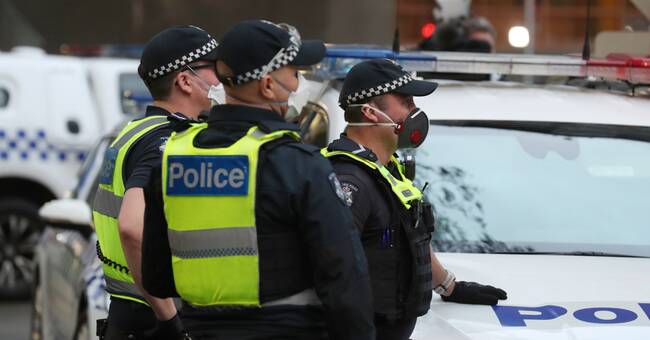A video that has gone viral shows how 28-year-old Zoe-Lee Buhler is handcuffed and arrested by police at home in front of her children and husband.
In the video, the woman, who is pregnant and wearing only pajamas, is heard saying: "I did not realize I was doing anything wrong".
The event was filmed by her husband and broadcast live on Facebook at the same time.
Accused of incitement
The police who appear in the clip state that Buhler was arrested due to a Facebook post calling for protests against the region's lockdown rules.
According to police, the woman is suspected of inciting a planned demonstration in the city of Ballarat.
The state of Victoria has been on lockdown since July after a second wave of infections took off in the region during the summer.
The local government has introduced a ban on public gatherings and in the state capital Melbourne there is a curfew that only allows residents to stay outdoors one hour a day.
The lockdown rules are supported by parts of the population but have also aroused strong opposition, reports the BBC.
In response to the mobilization against the rules, the state police announced last week that they will arrest people who organize protests that are suspected of breaking the rules.
"Should not happen in a democracy"
The arrest of Zoe-Lee Buhler is defended by the local police leadership and has also received support from the state's head of state Daniel Andrews.
- Now is not the time to demonstrate against anything because it is not safe to do so, he says.
But the actions of the police have also aroused anger and condemnation.
- Proactively arresting people for organizing peaceful protests or for posts they have made on social media is something that happens all too often in authoritarian regimes.
That should not happen in a democracy like Australia, says Elaine Pearson, Head of Australia at Human Rights Watch.
Civil law groups have previously criticized Victoria's lockdown rules for being among the toughest in the world and for hitting disproportionately hard on socio - economically weak areas.
The current rules are planned to apply until September 13, but the authorities have flagged that they may be extended, writes the BBC.

